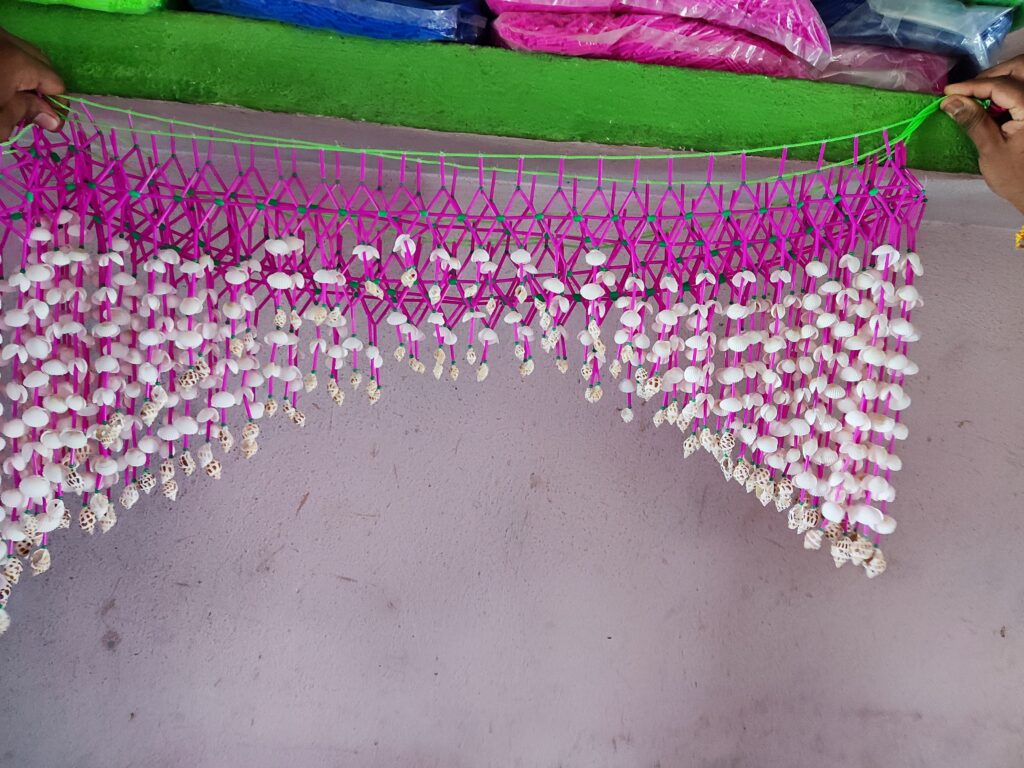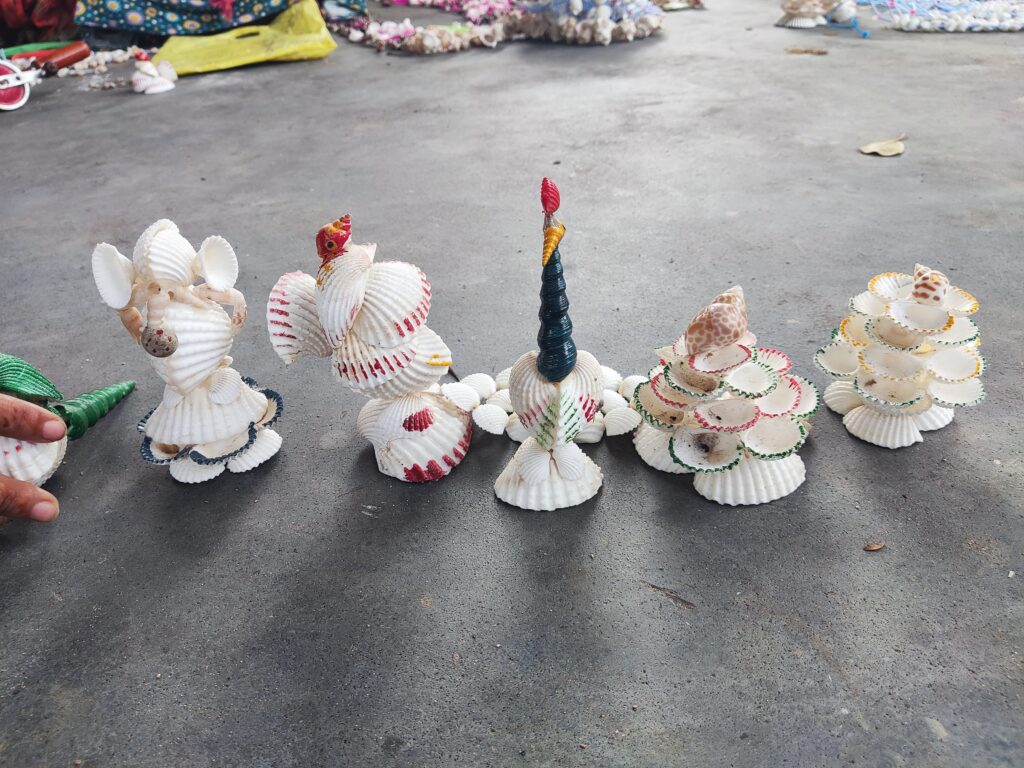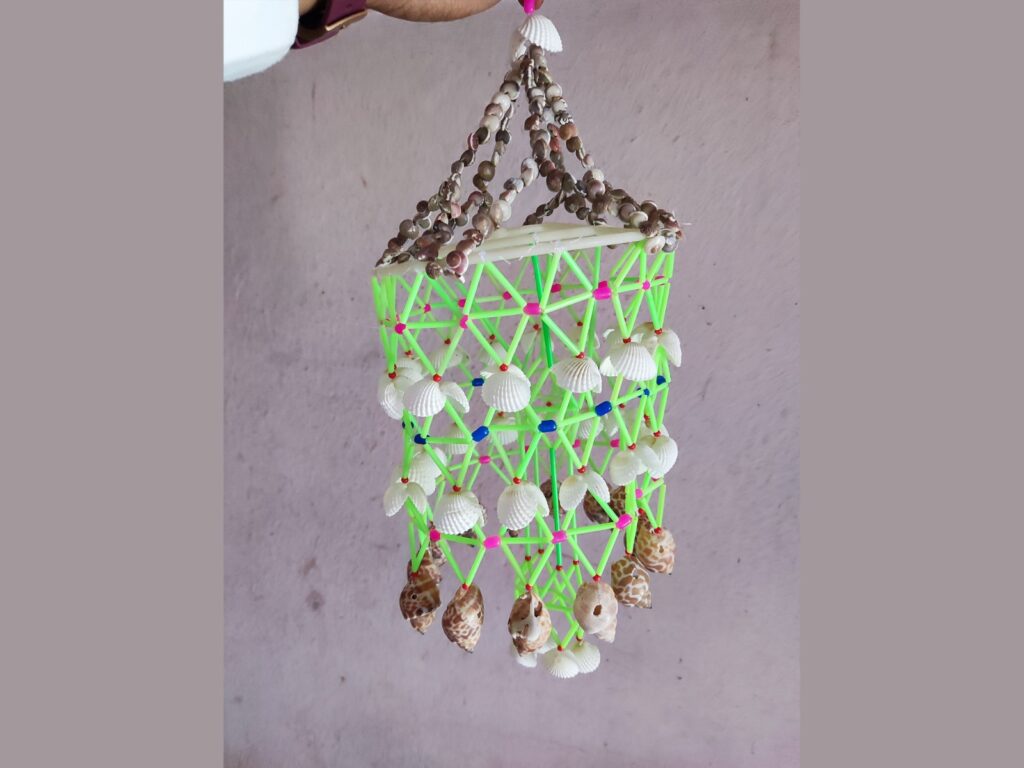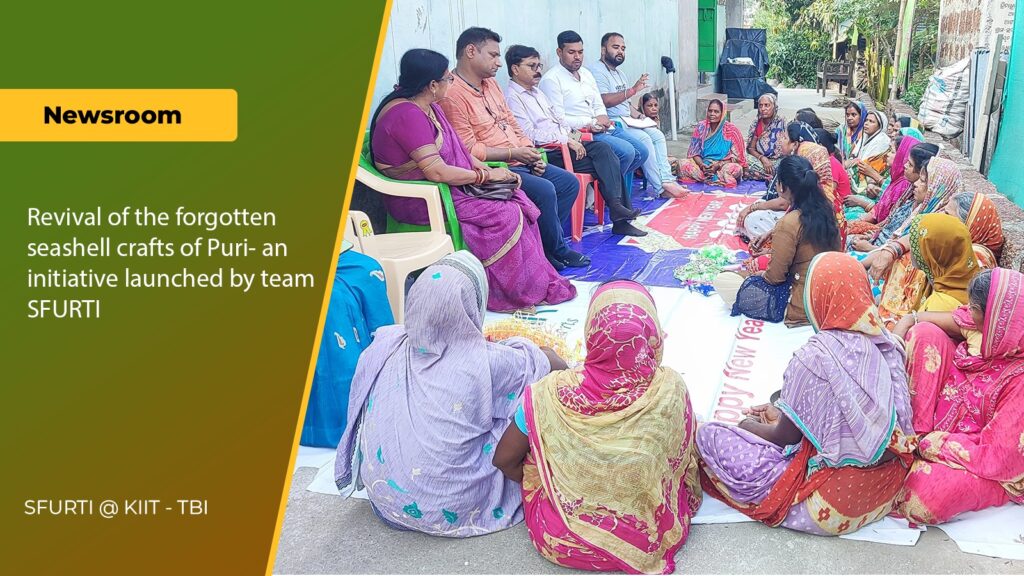Puri often referred as the “handicraft capital of Odisha” situated in the eastern part of the state is well renowned for its religious significance and vibrant cultural heritage. Besides being the center of tourist attractions in Odisha, it is also home to many versatile craft forms like appliqué work, stone carving, pattachitra and seashell crafts. In the two blocks of Puri, namely Delanga and Gop, approximately 412 artisans are currently engaged in the intricate craft of seashell work. Despite this substantial artisan population concentrated in these areas, there exists a notable absence of a dedicated government-established support center. Moreover, the artisans are lacking appropriate Government supports in areas such as; credit facility, skill upgradation trainings, buyback market linkage etc. Besides, this craft is majorly dominated by the tourist presence in Puri as there is no dedicated marketing channel available for artisans to sell their products outside of district/state.
Through a comprehensive discussion several key facts related to the craft and the artisans were pinpointed. For instance, all the artisans were housewives who relied on seashell crafts to provide crucial additional economic stability to their families, with around two family members engaging in the craft for 3-4 hours daily.
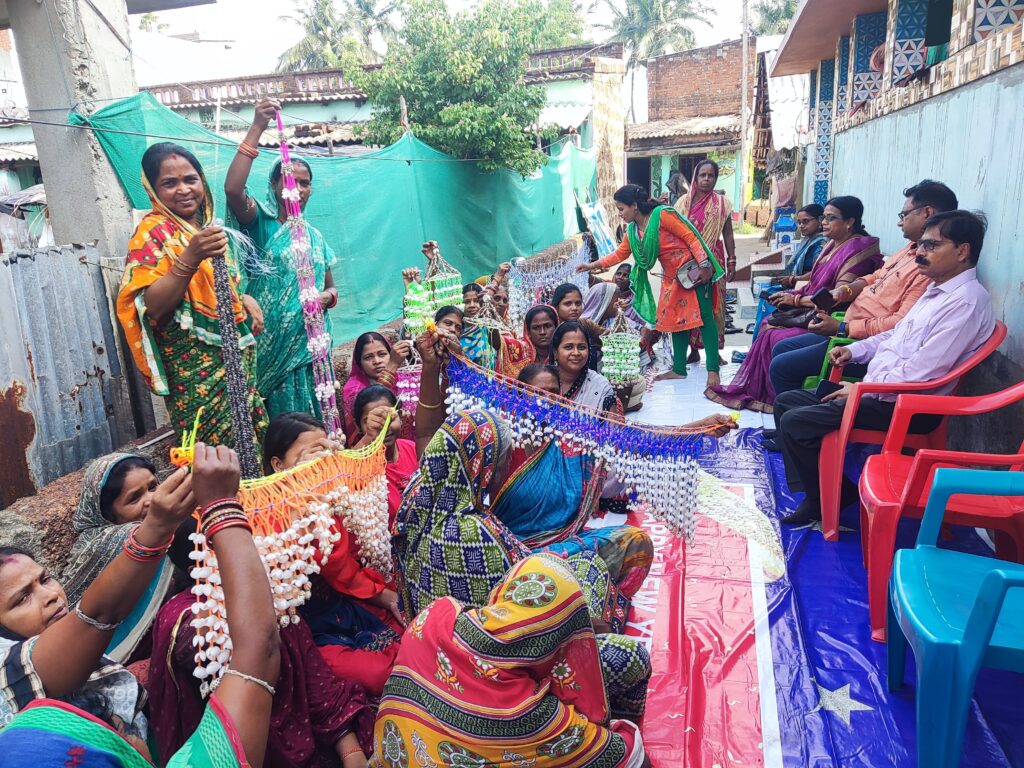
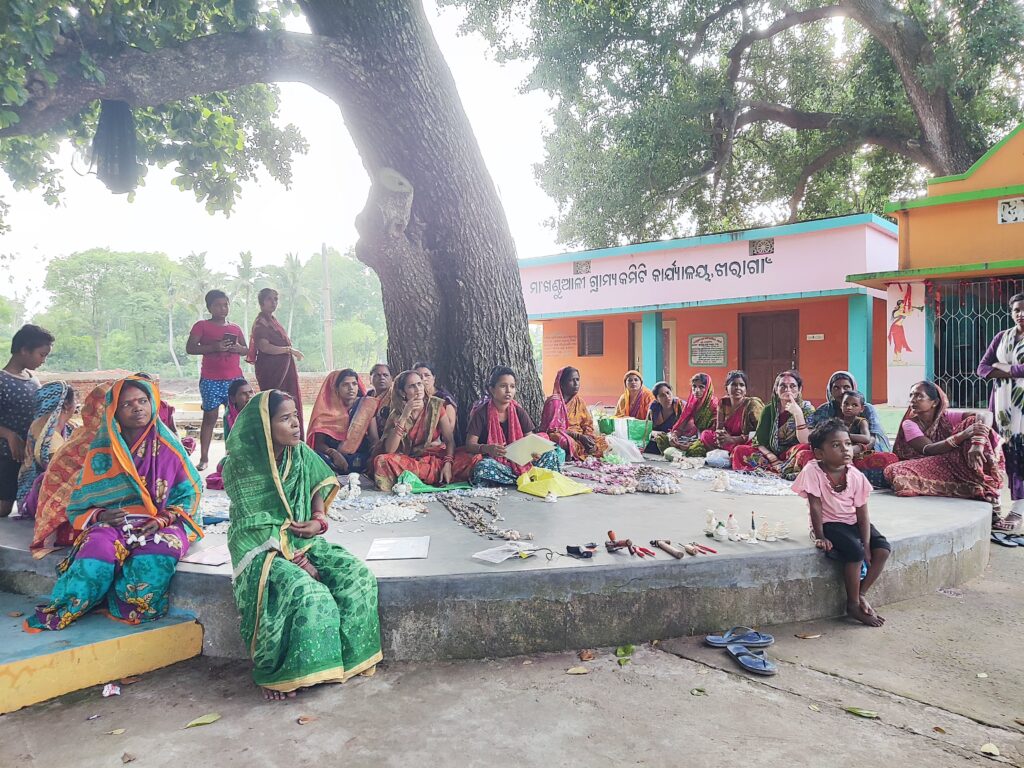
In Sadanandapur, artisans were largely self-taught due to minimal skill training, while those in Kharagan had undergone minor upgradation training, allowing them to produce more refined products using simple tools. Despite this, most were unaware of government schemes, had limited access to raw materials, and lacked funding support often relying on small local loans. Their market was restricted to temporary beach shops in Puri, with revenue largely dependent on tourists during a four-month peak season. Artisans generated about INR 60,000 during this period but received payment only after their products were sold without any advance payment. The craft’s progress is hampered by a lack of market access, funding, awareness, and training, despite its potential for innovation.
This interactive session will be immensely beneficial for the artisans, as KIIT-TBI plans to conduct a comprehensive study and survey on seashell crafts. This report will highlight the artisans’ challenges to the government, paving the way for targeted solutions. As a result, the artisans will gain renewed hope and strong motivation to showcase their craft in the global market.
